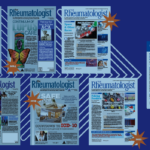Advocacy Is Meaningful
There’s no doubt that learning and practicing advocacy take time and effort. Sometimes, especially for those who live beyond the Northeast or Mid-Atlantic area, traveling to Washington, D.C., can be onerous. It may mean closing clinics, finding coverage and taking administrative time. Yet this investment offers clear benefits: Advocacy is a meaningful way to solve problems that are occurring in the clinic. We all experience barriers to the provision of high-quality care, including prior authorization, peer-to-peer insurance reviews and pharmacy benefit managers (PBMs). We try to solve these issues as they arise, but sometimes the only meaningful way to solve the issue is to be proactive in influencing policy. Keeping the system as is while cursing at it for its inefficiencies is not a viable strategy but rather a recipe for burnout.
The first time I went to Washington, D.C., is a good example of this. One of the topics that our team had advocated for was electronic prior authorizations for Medicare Part D medications. After discussing the topic with several senators and their staff members, we were able to reinforce the importance of streamlining prior authorization for these medications. At the time, I was unsure about whether those conversations had any impact, but a few days later, we heard in follow-up that a particular senator’s office was willing to co-sponsor a bill to address this pressing issue. Ultimately, the bill was passed—and now, years onward, we have electronic prior authorization for Medicare Part D medications. Of course, this legislation didn’t solve the entire problem, but it was a meaningful step in the right direction.
Not all advocacy efforts lead to such successes. The majority require years of sustained and coordinated effort to get an issue through the many subcommittees and committees within our legislative bodies. Sometimes, repeated meetings and modifications are required to generate consensus on a bill to address issues of import to rheumatologists and our patients. In the case of legislation overseeing PBMs, I have witnessed the issue slowly come to the forefront after years of meeting and talking with legislative staff members. A few years ago during these constituent meetings, advocates needed to explain what PBMs were and give examples of how PBMs increase the costs of care. Nowadays, legislative staff members politely nod while we explain the rheumatology community’s point of view, and then legislative staff members provide updates about the legislative initiatives. Although things move slowly in our democratic system, they can only move forward when concerned citizens unite to demonstrate what initiatives have meaning to them.


